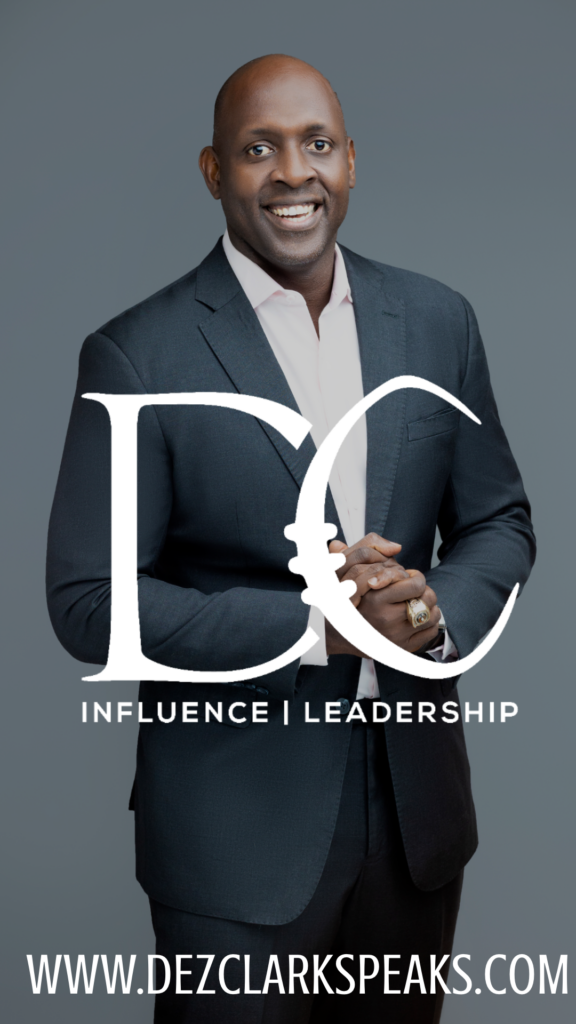Leadership isn’t about judging in the moment; it’s about aligning effort, focus, and outcomes.
Author: Desmond Clark – Former 12 YR NFL Veteran | President/CEO of Bear Down Logistics | International Motivational Speaker and Team Leadership Development Specialist

Every player misses a catch, and every leader faces setbacks.
Football is a game of execution, precision, and adaptability. And if you’ve ever watched quarterbacks closely, you might notice what happens after a missed pass or a dropped ball. Some quarterbacks shake their heads, subtly placing judgment on their teammates.
But here’s the truth: every receiver has dropped a pass, and every quarterback has thrown an interception. Football, like business, is complex, with countless moving parts. Perfection is elusive; even 80% accuracy won’t guarantee success. It takes near-perfect execution—95% or better—to set up a play for success consistently. And while talent helps, attitude, effort, detail, and discipline play the most significant roles in achieving these outcomes.
Leaders should focus on outcomes, not judgment. Visible frustration, like a head shake, subtly communicates “You didn’t do your job.” Instead, the focus should shift to how we can get it right next time.
Real Leadership Means Leading Through Failure
No one is perfect in their role. Everyone, at some point, fails at their job. The real difference-maker? How hard are they working to win, focusing on attitude, effort, and discipline? And when leaders make it about their personal judgment, they risk creating a culture where mistakes become personal rather than a pathway to improvement.
There are two critical moments in leadership failure:
- Acknowledge and Learn Later: Sometimes, players or employees don’t meet expectations. But the 42-yard line isn’t the place for finger-pointing. Leadership means addressing failures when the moment is right, focusing on coaching, not judgment.
- Meet Outcomes Together: Even the hardest-working leader must collaborate with team members who may not match their intensity. Great leaders don’t demand others become them; they lead others to shared success.
What Happens When We Stop Shaking Our Heads?
When a leader stops making visible judgments, the focus shifts to plotting the next play and working toward the outcome. This is where business leaders often hit a snag:
- They expect their employees to work as tirelessly as they do.
- When expectations aren’t met, it’s easy to see it as a team member’s shortcoming rather than an opportunity to improve preparation or support for success.
As business owners, we put in the extra hours because it’s our name on the line; we have a personal stake. Employees may work hard, but their motivation and commitment differ—they’re not working toward equity or ownership. Recognizing this difference enables leaders to shift the conversation from “why aren’t they like me?” to “how can we all succeed together?”
Leading Through Outcomes, Not Head Shakes
If success is measured by how hard everyone works, we risk creating burnout and frustration. But by focusing on results and ensuring our systems, processes, and team dynamics align, we stop the head-shaking and start achieving.
Next Steps for Leaders: Move from judgment to planning. Guide your team not by expecting them to mirror your commitment but by equipping them to deliver successful outcomes.
When we shift our focus from reactions to results, we stop shaking our heads—and we start winning.
For more insights on building resilient, high-performing teams, visit DezClarkSpeaks.com.


